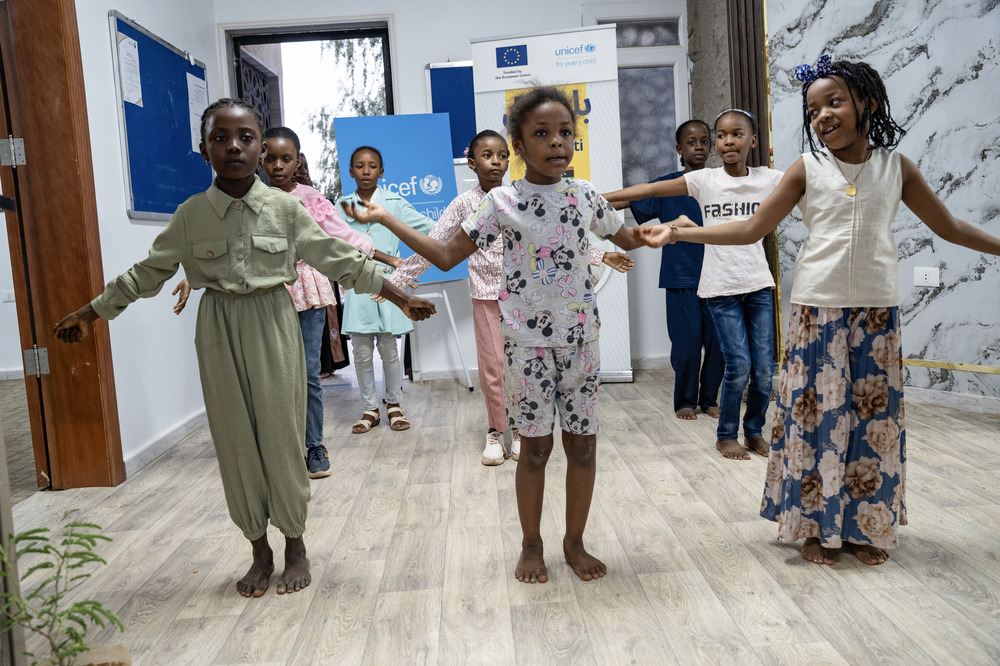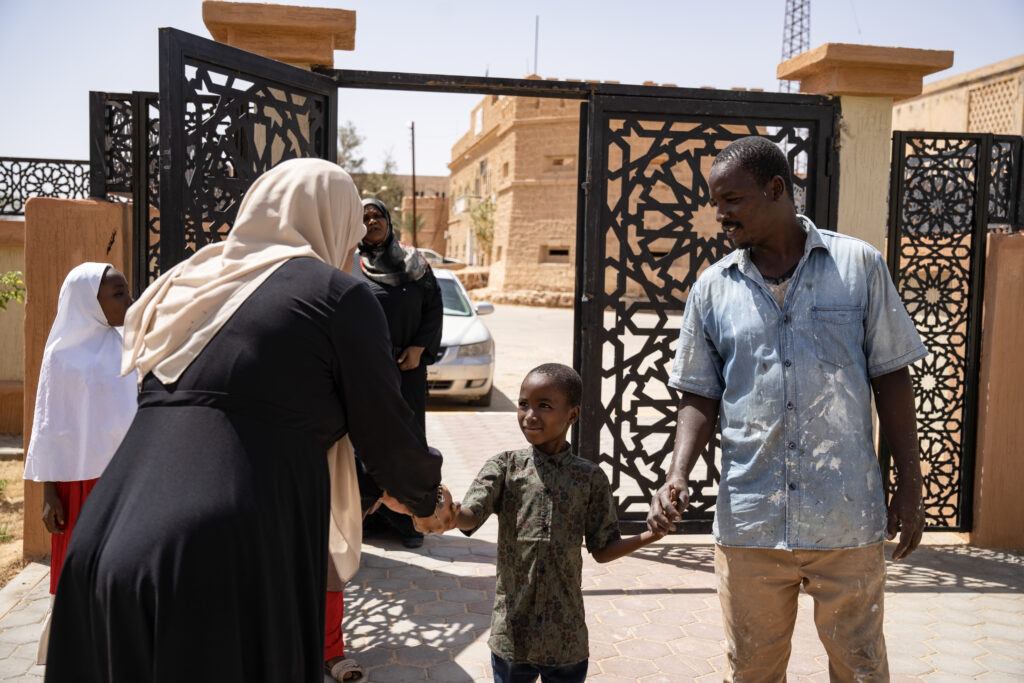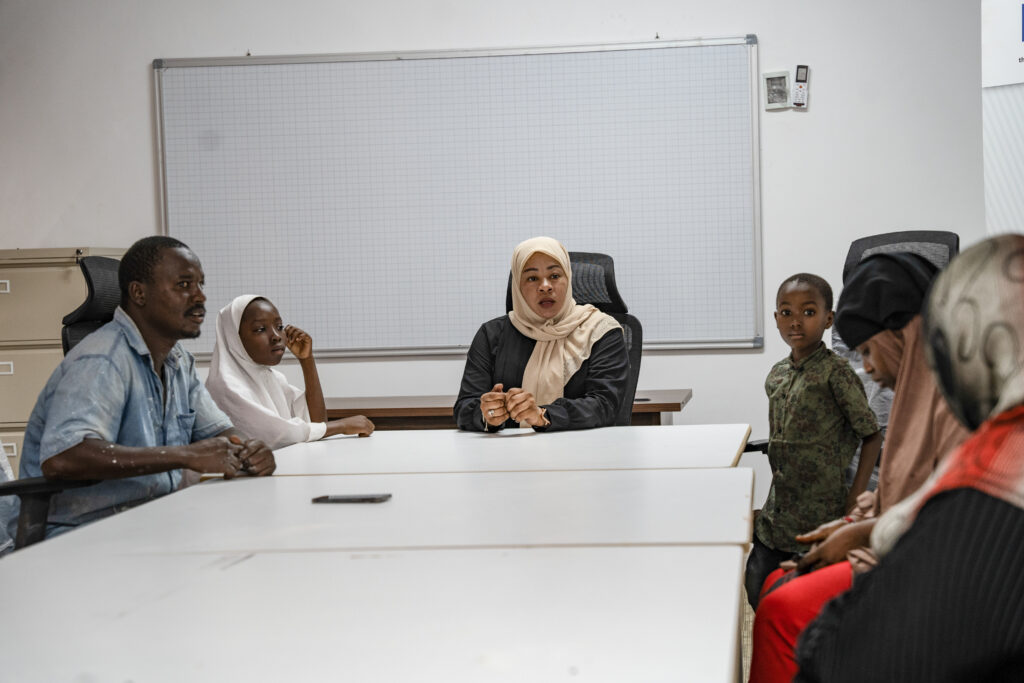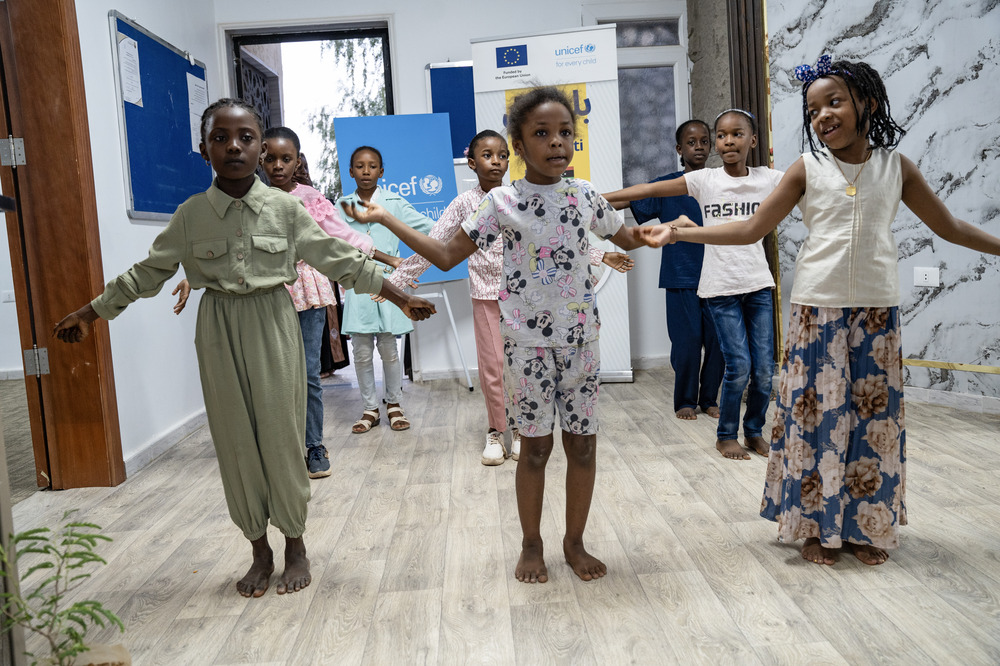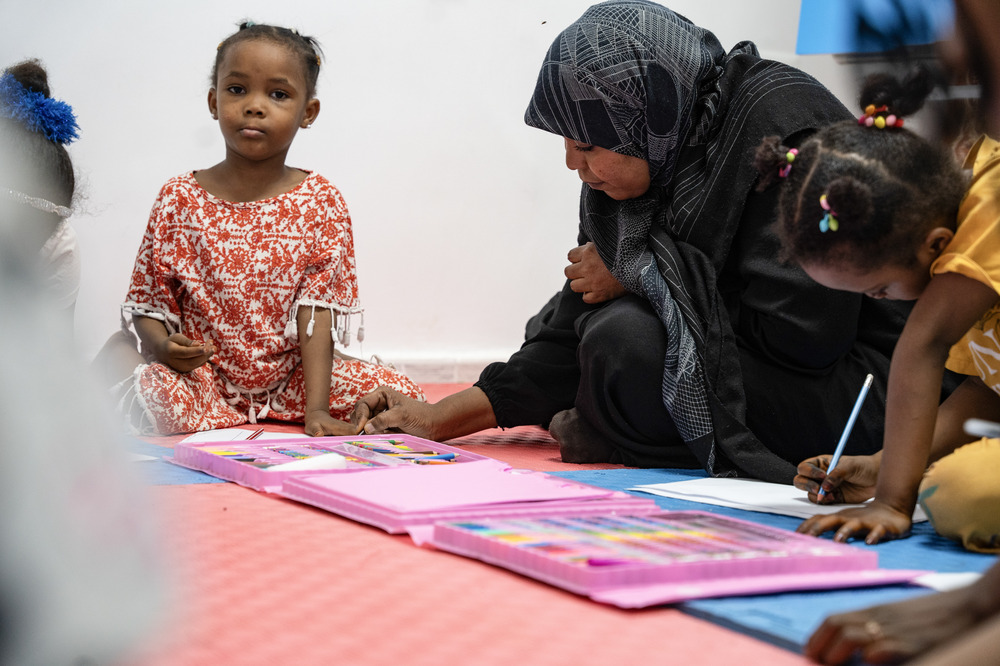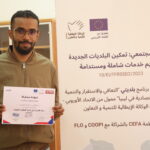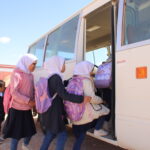In Ghat, like many communities across Libya, families face the daily challenges of raising children in an ever-changing world. With the pressures of conflict, displacement, and economic hardship, the need for safe spaces where children can learn and grow has never been more critical. At the heart of these efforts are the local youth/child centres, providing education and activities to support parents, helping them navigate the complexities of positive parenting and discipline in a way that fosters healthier, stronger family bonds.
Zahra Abdou, the director of the local youth/child centre in Ghat recognized a growing need for stronger bonds between parents and their children. After noticing troubling behaviours in some of the children attending the centre, Zahra and her team took immediate action. They initiated a series of awareness sessions for parents, focusing on positive parenting and discipline, as well as preventing violence.
Zahra Abdou welcomes Ibrahim’s family to the youth/child Centre in Ghat for a positive parenting session, promoting support and positive discipline. Photo: @UNICEFLibya/Abdullah Hussein
“Due to our interaction with the children at the centre and through the activities we offer, we noticed certain behaviours in some of them,” Zahra explained. “Upon studying the situation, we found that the children had been subjected to violence. Our first step was to target the mothers with awareness sessions on positive parenting, violence against children, and positive discipline.”
Zahra and her staff, trained on child protection and violence prevention, were well-prepared to address these issues. They had received specialized training on how to recognize signs of violence in children and how to intervene safely and effectively. This training not only enabled them to work with the children but also to guide parents toward adopting positive discipline methods.
Zahra Abdo the director of the Baity Centre targets the parents with awareness sessions on positive parenting, and positive discipline. Photo: UNICEF Libya Abdullah Hussein
Through the awareness sessions, parents began to transform their approach to interacting with their children. The youth/child centre team replaced harmful practices with positive discipline methods, helping families break the cycle of violence. Life skills training, peacebuilding activities, and even entrepreneurship courses were introduced to the children, providing them with tools to thrive and build character.
Zahra notes that the impact extended beyond the classroom: “Our goal was to modify behaviours and contribute to the children’s overall development.”
The training given to the youth/child centre workers on violence against children also helped create a safe and supportive environment, where any signs of abuse could be identified and addressed quickly and properly. As Zahra explains, “Our team received training to ensure that we can protect the children and intervene when necessary, ensuring that the centre is a place where children feel safe and cared for.”
Children participating in psychosocial support activity at the child friendly space in Ghat. Photo: UNICEF Libya Abdullah Hussein
A mother of Four has seen firsthand the positive changes the youth/child centre has brought to her family. “Frankly, my experience with the centre has been excellent so far. I have noticed a significant positive change in my children’s behavior after their engagement in the centre’s activities,” she shared. “Every day, they tell me about their activities and the advice they were given, trying to implement what they’ve learned at home.”
The transformation extended beyond her children. The mother herself has embraced the centre’s teachings on positive discipline. “Previously, shouting and hitting were predominant in my interactions with them, but now I follow the trainers’ advice and guidance. Positive discipline and advice have become crucial methods I use.” She’s noticed a ripple effect, as her children’s improved behaviour and kindness have caught the attention of relatives, neighbours, and peers.
For Ibrahim Shoaib, a Nigerian builder who has lived in Libya for 12 years, the youth/child centre has been equally transformative. Ibrahim’s three children now attend the center, and he has seen noticeable changes in their behaviour.
Aeshah Hamed, Municpal member, joins children in the activity at youth/child centre . Photo: UNICEF Libya Abdullah Hussein
“What attracted me to the centre were the two main points of education and upbringing,” he explained. “From the early days, I noticed a change in my children’s behaviour at home—their commitment and their desire to go to the centre. I no longer need to guide them all day long, and I am very happy with the new friendships they’ve formed.”
The impact of the youth/child centre extends far beyond its walls, creating a supportive and safe environment where children are empowered to grow and thrive. Parents, Ibrahim, have become advocates for the centre’s work, encouraging others to enroll their children to benefit from its positive influence.

